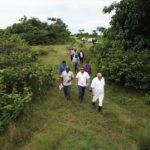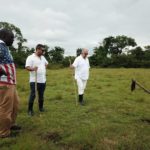Mubende locals lose close to two million hectares land to grabbers in last year alone with more 195,000 families affected.
This has been revealed in a report released Tuesday by a Non-Governmental Organisation, Witness radio Org.
According to the report, in the period of 2017 in which Witnessradio.org was able to document cases of land grabbing and forceful eviction of sitting tenants and bonafide occupants, land totaling up to 1,975,834 hectares was lost in Mubende to land grabbers.
The findings indicate that majority (60 per cent) of the perpetrators were local business persons followed by foreign investors with 6 cases (24 per cent) and government with (12 per cent) cases.
More than 70 per cent of the grabbed land has been acquired through “title on the table,” process.
But to the report, this process unfortunately sidelined lawful procedures as prescribed in the 1998 Land Act.
The new process introduced by officials in Mubende Land Board issues minutes for the titles from their offices before physically visiting the land and consulting established structures including area land committees.
The findings also show that Freehold land had the highest cases of disputes and evictions with 13 (52 per cent) out of the 25 cases followed by Mailo land with 6 cases. In terms of land size, still Freehold land was the largest at almost 99 per cent, equivalent to 1,945,539 hectares.
Additionally, from the findings, 24 out of the 25 cases were forceful evictions, affecting over 186,000 households.
The only case which was not forceful was because the occupants hadn’t been evicted yet.
The report was prepared with the objective of understanding the magnitude of land forcefully taken through evictions and its impact on the indigenous peoples’ livelihoods.
“We monitored and investigated land evictions, a combination of research and data collection methodologies including conducting interviews with both victims and perpetrators, document reviews of both courts and newspaper articles on the same; as well as medical records and other documents from partners working on the issues of land grabbing in Mubende district.” Wokurira Ssabaggala of Witness radio Org said.








